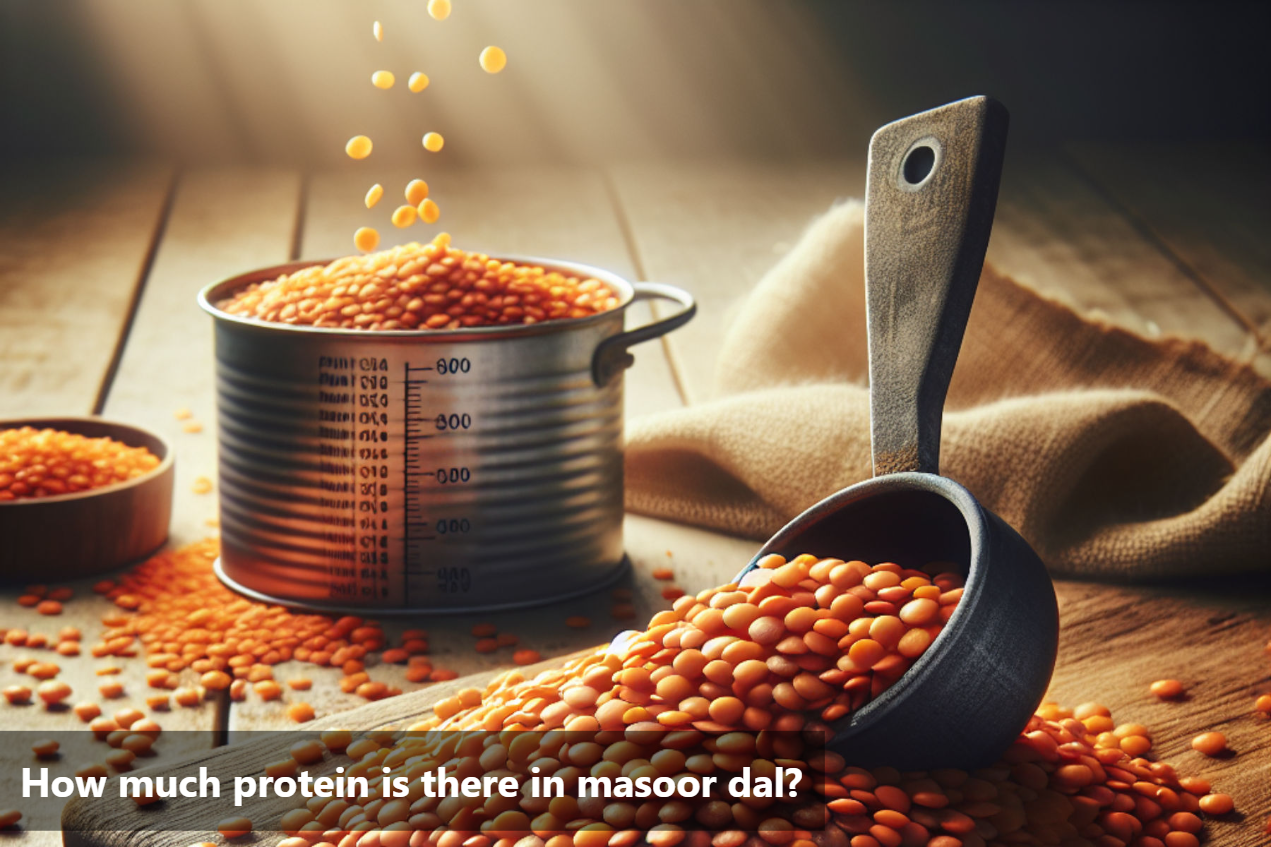
How much protein is there in masoor dal?
Masoor dal, also known as red lentils, is a popular legume in Indian cuisine. It is a versatile ingredient used in various dishes like dal tadka, soups, and curries. Masoor dal is not only delicious but also packed with essential nutrients, making it a valuable addition to a balanced diet.
One of the key nutritional benefits of masoor dal is its high protein content. Protein is crucial for building and repairing tissues in our body, making it an essential macronutrient. In just one serving of masoor dal, you can get a significant amount of protein, which is especially beneficial for vegetarians and vegans looking to meet their protein requirements.
Incorporating masoor dal into your diet can not only add a delicious touch to your meals but also provide you with essential nutrients like protein. Whether you enjoy it as a comforting bowl of dal or as a hearty lentil soup, masoor dal is a versatile ingredient that can benefit your overall health and well-being.

Nutritional Profile of Masoor Dal
Nutrient |
Amount (per 100 gm) |
Calories |
343 kCal |
Carbohydrates |
59.00 grams |
Protein |
25 grams |
Dietary Fibre |
10.00 grams |
Fats |
1.00 grams |
Iron |
7.5 mg |
Selenium |
8.3 µg |
Folate |
479 µg |
Thiamin |
0.9 mg |
Riboflavin |
0.2 mg |
How Much Protein is in Masoor Dal?
Masoor dal, also known as red lentils, is a popular legume in Indian cuisine known for its high protein content. When it comes to protein in masoor dal, a single serving can provide a significant amount of this essential nutrient.
In a typical serving size of masoor dal, which is around one cup cooked, you can expect to get about 18 grams of protein. This makes it an excellent plant-based protein source for vegetarians and vegans looking to meet their protein needs.
Comparing masoor dal to other protein sources, such as chicken or eggs, it stands out for being not only high in protein but also low in fat. Additionally, masoor dal is rich in fiber, iron, and various vitamins, making it a nutritious choice for overall health.
Including masoor dal in your diet can help in maintaining muscle mass, promoting satiety, and supporting overall health and well-being. Whether you enjoy it in curries, soups, or salads, incorporating masoor dal into your meals is a delicious way to boost your protein intake and reap its numerous health benefits.
Tips for Incorporating Masoor Dal Into Your Diet
When it comes to boosting your protein intake, masoor dal can be a tasty and nutritious addition to your meals. Here are some simple yet effective tips to help you incorporate this protein-rich legume into your diet seamlessly:
Masoor Dal Soup: Start your meal with a warm and comforting masoor dal soup. Seasoned with aromatic spices like cumin and turmeric, this soup not only satisfies your taste buds but also provides a protein boost.
Masoor Dal Curry: Prepare a flavorful masoor dal curry with tomatoes, onions, and a hint of coconut milk. Serve it with steamed rice or roti for a wholesome and protein-packed meal.
Masoor Dal Salad: Spruce up your salads by adding cooked masoor dal for an extra protein punch. Combine it with fresh veggies, a squeeze of lemon, and a drizzle of olive oil for a refreshing treat.
Masoor Dal Khichdi: Whip up a comforting masoor dal khichdi by cooking rice and dal together with mild spices. This one-pot meal is not only easy to make but also a complete protein source.
-
Masoor Dal Stew: Experiment with a hearty masoor dal stew loaded with vegetables like carrots, potatoes, and spinach. Pair it with whole grain bread for a satisfying and nutritious dining experience.
By incorporating masoor dal into your diet in creative and delicious ways, you can effortlessly increase your protein intake and reap the nutritional benefits it has to offer.

Unveiling the Protein Riches of Masoor Dal
Masoor dal is a powerhouse of nutrition, especially known for its high protein content. It contains a substantial amount of protein, making it an excellent plant-based protein source for vegetarians and vegans. The protein content in masoor dal is crucial for muscle repair, growth, and overall body function.
By adding masoor dal to your meals, you not only enhance the protein intake but also benefit from its other valuable nutrients such as fiber, iron, and potassium. This versatile legume can be used in various dishes like soups, stews, and curries, providing a delicious and nutritious addition to your diet.
Including masoor dal in your regular meals can significantly contribute to meeting your protein requirements while promoting overall health and well-being. So, next time you plan your meals, consider adding masoor dal to enjoy its protein-packed goodness and reap the health advantages it offers.
This Blog post is an initiative by Lo! Foods, to provide accurate and Nutritionist / Doctor approved information related to Health. Lo! Foods is India's leading brand for Everyday Functional Foods. Foods designed for specific Health conditions or Needs. Lo! Foods also runs India's largest range of Low Carb Healthy Cloud Kitchens, under the brand names of Lo!, ProteinChef, ATH (All Things Healthy) and DiabeSmart.













Leave a comment
Your email address will not be published.